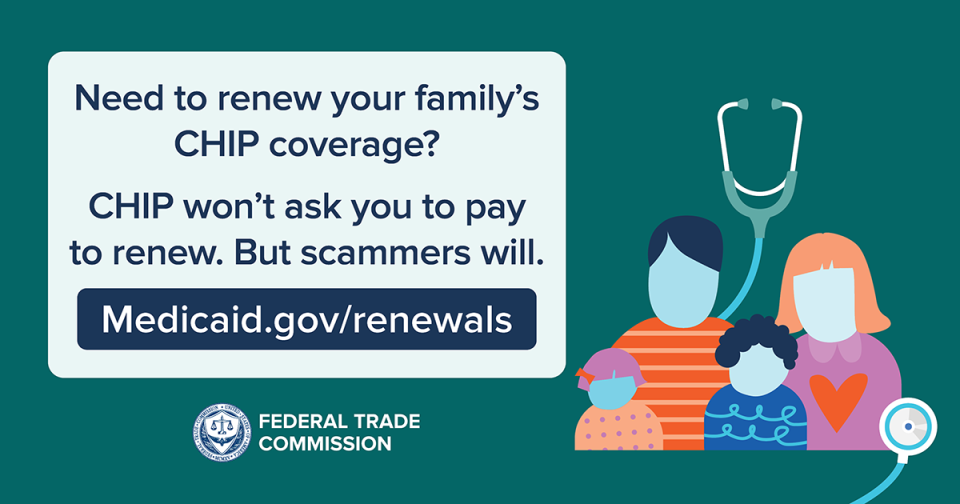 Finding and keeping health insurance for your family can be stressful and expensive. During the pandemic, your state’s Medicaid Children’s Health Insurance Program (CHIP) might have helped — but with the end of the pandemic, states may be reaching out to update your family Medicaid enrollments. Except scammers might try to get to you first. So how can you spot them?
Finding and keeping health insurance for your family can be stressful and expensive. During the pandemic, your state’s Medicaid Children’s Health Insurance Program (CHIP) might have helped — but with the end of the pandemic, states may be reaching out to update your family Medicaid enrollments. Except scammers might try to get to you first. So how can you spot them?
First, while the process to renew may differ from state to state, nobody legit will ask for your personal information over the phone or demand that you pay to renew. Medicaid won’t. CHIP won’t. But scammers will.
So, to protect you and your family from scams:
- Remember that CHIP won’t charge you to renew or enroll. CHIP may reach out to you by email, phone, or text messages to renew your coverage — but they won’t ask you to pay. They also won’t ask for your personal financial information, like your bank account or credit card number.
- Don’t click on links in text or email messages, even if it looks like the message is from your state’s Medicaid agency. That’s a scam. Go to Medicaid.gov to find your state’s Medicaid agency. Then contact that agency to get more information.
- Start at HealthCare.gov to compare insurance plans, coverage, and eligibility. The site requires information about your monthly income and age to give you a quote. If anyone or any site asks for your financial information, like your bank account or credit card number, to get a quote, that’s a scam.
- Know that medical discount plans are not medical insurance. Scammers often pitch medical discount plans by convincing people they’re the same as insurance — but they’re not. They often just take your money for very little in return.
If you spot a CHIP scam, report it to the FTC at ReportFraud.ftc.gov.





Please be certain Squeak and…
Please be certain Squeak and Olivia Tackett and Levi all have insurance.